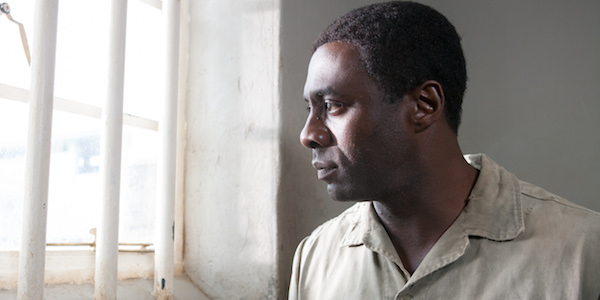
Review – Mandela: Long Walk to Freedom
IMDB: 7.1 Rotten Tomatoes: 57%
Opens: 6th February
Making a biopic on Nelson Mandela was always going to be a difficult task. There is such a mythos surrounding the man that the stark truth could feel underwhelming and yet, at the same time, any story that does not live up to this myth will feel like an injustice. Mandela: A Long Walk To Freedom musters a serviceable effort but doesn’t quite get all the way.
Based on Mandela’s autobiography, A Long Walk to Freedom, the film covers the events of Mandela’s life from him joining the ANC through to his arrest, incarceration and release, and through to the ultimate unification of South Africa under his presidency. Although it often strays from this text and history, the film works well as a companion piece to Mandela’s autobiography, adding poignancy to events which in the writing were often described with sublime modesty.
The film is often (and appropriately) brutal and manages to accurately convey the escalation of the violence and unrest of the period. The pain and division of the country is palpable and brought home in performances from Idris Elba and Naomie Harris (who play Nelson Mandela and Winnie Madikizela respectively). These performances were ultimately the strongest aspects of this film: high calibre actors are required to portray such an ordeal, and if the cast took liberties in making these characters their own it was for the purpose of wringing out all the emotional impact that the film needed to work.
Mandela’s life is more than interesting enough to be devoted to film. There is plenty of content to fill out 120 minutes of running time without any stretched scenes or boring “filler” material. But as is a common flaw with most biopics, the story of one person’s life does not lend itself easily to the language of cinema, and the presentation here felt more like a collection of loosely related scenes than a cohesive story.
Additionally, the film makers have trouble deciding what aspects to focus the story on. Do you focus the film on the man and how he becomes the person who would ultimately bring this country together, or do you focus on the struggle which he becomes the figurehead and catalyst for? Instead of deciding on one direction the filmmakers tried to handle both aspects, but ultimately don’t give either their full justice. Mandela’s character changes quite starkly from scene to scene and the film doesn’t delve into the events that would cause such a change. Additionally, the struggle is never shown in sufficient detail as to justify why there was international outcry over Mandela’s incarceration. It is instead shown as him attending a few rallies before doing a few acts of sabotage.
These systemic flaws aside, the story is still interesting enough that the film is still enjoyable (as much as the subject material will allow) and insightful. And while it is not exactly a history lesson, but it does expose a greater number of people to the fight, determination and enlightened philosophies of a great man.
[youtube=http://www.youtube.com/watch?v=zLvt-mDhF3c&w=400]




